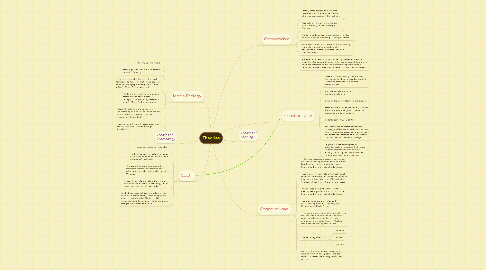Theories
by khrystyna marenych


1. Media Ecology
1.1. has multiple definitions
1.2. "second great transition in the history of mankind" - Boulding
1.3. "study of media, idea that technology and techniques codes of information and codes of communication play a leading role in human affairs" - Media Ecology Association
1.4. "looks into the matter of how media of communication affect human perception, understanding, feeling and value" - Media Ecology Association
1.5. "study of media as environments. Our understanding of media as not an object, not as institutional organization but as an environment" Lance Strate
1.6. "how our interactions with media facilitate our chances of survival" - Media Ecology Association
2. SCOT
2.1. social construction of technology
2.2. "technology does not determine human actions, but rather human actions shape technology" - Wikipedia
2.3. "the way technology is used cannot be understood without understanding how technology embedded in its social context" - Wikipedia
2.4. "those who seek to understand the reasons for acceptance and rejection of technology should look to the social world" - Wikipedia
2.5. Ex: the bicycle was first used and valued by the people as a source of thrill, speed compared to what it is used for today. The factors like urbanization and the needs for the transportation changed the purpose of the bike
3. Theories of Thechnology
4. Connectivism
4.1. "theory of the digital world. Learning occurs as apart of a social networking of diverse connections." - Connectivism
4.1.1. Task
4.1.2. Prerequisites
4.2. "capacity to know is more critical than what is currently known." - George Siemens.
4.2.1. Task
4.2.2. Prerequisites
4.3. "nurturing and maintaining connections is needed to facilitate continual learning." - George Siemens
4.3.1. Task
4.3.2. Prerequisites
4.4. empowers students to take control of their learning and make connections with others which strengthens their learning process - YouTube, Network Student
4.5. students can access information written by the best scholars and share this information with others. Other people around the world in return can comment on this and give their perspective which in return can broaden students worldview - YouTube, Network Student
5. Cognitive Load
5.1. "information processing theory used to explain the limits of working memory based on current knowledge of human cognitive architecture." - Learning and ID, Information Media Project
5.2. "working memory can hold only about 7 small chunks of information and people can remember them for short period of time of 30sec-2mins." - YouTube, Introduction to the Cognitive Theory
5.3. "the overload occurs when the working memory has to process too much too fast" - Learning and ID, Information Media Project
5.4. "long term memory is unlimited and assists working memory" - Learning and ID, Information Media Project
5.5. "in order to process information and put in into the long term memory person has to create connections between existing and new information and create schema." - YouTube, Introduction to the Cognitive Theory
5.6. 3 types of cognitive load
5.6.1. extraneus
5.6.2. intrinsic
5.6.3. germane
